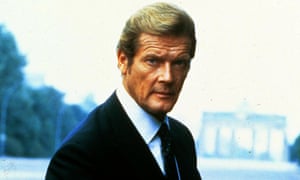Crime reporter(wp):
The Manchester bomber was not just trying to kill those at the pop concert, but he was also targeting you and me. He wanted to make us nervous about going to a shopping centre today or attending events such the FA Cup at Wembley this Saturday. His weapon of choice was the emotional responses that we carry within us and which he was trying to trigger.
Emotions such as horror: at the lives snuffed out, the injuries sustained, the families devastated. Or fear: that on another occasion it might be us who is involved and who is carried away in bodybags. Or anger: that a person could do such a thing and be “inspired” by a political or religious ideology.
There is also the resentment that the attack forces us to reassess daily acts that we have taken for granted up to now: is it safe to travel on buses? Might it be best not take the children to a funfair?
Worst of all is the sense of vengeance it evokes in us, wanting to lash out and hurt those whom we – however lacking in evidence – associate with the bomber; at the same time, we instinctively raise drawbridges and seek to isolate ourselves from groups other than “our own”.
What all these responses have in common is that they are negative reactions, and although totally understandable, they lessen us rather than enhance us. We are being offered sugar-coated poison and should refuse it.
What is needed is reassurance on two levels. First, the reassurance that our way of life will continue. More security checks may now be necessary, but concert halls will still function, public transport will still run. We want there to be a tomorrow and we want it to resemble today.
Second, the reassurance that our values are still intact. Society will still be based on law and justice. Cross-communal events and inter-faith dialogue will carry on, social and cultural events will still flourish. Doing what is noble, speaking the truth, loving our neighbours as ourselves – they will all remain.
With time and help, we can cope with personal shock and we can overcome individual trauma, but what we fear most is our social structures being derailed and losing everything that hundreds of years of gradual progress have achieved.
We know we are not alone: New York faced 9/11, Paris experienced Charlie Hebdo, and many others have suffered and survived. Amid the mayhem, there are beacons of light. As the prime minister of Norway, Jens Stoltenberg, said after the shooting of schoolchildren in 2011: “You will not destroy us. No one will stop Norway from being itself” and he vowed that the response would be “more democracy, more openness, more humanity”. It was echoed by the populace at large, which said: we shall not change our way of life, we shall recognise the disturbed man responsible for the killings as an exception and not let him alter the rule.
It could have been so different: looking instead for scapegoats, pointing fingers, turning inwards, blaming migrants or each other. It was a national example of staying calm, working together and believing in the common good.
It is also worth remembering that the forces of good are often underestimated. In the recent terrorist attack on Westminster Bridge, there was one terrorist, but thousands of people who rescued, comforted, gave medical care, and donated money in memory of the policeman who was killed, PC Keith Palmer.
The Manchester Arena will not be the last incident, and, sad to predict, more lives will be lost and more bereaved families will be created in other parts of the country. Individually, there will still be suffering, but, collectively, providing we can preserve our values and stop our emotions from diverting us, the attacks will be ineffective in their larger aim of altering who we are and how we behave.
